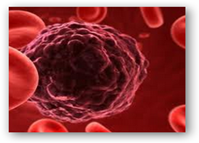This study including over 100 investigators from 20 institutions, substantiates some new findings about determining behavior patterns between metastatic cells and non-metastatic cells.  Metastatic cells are softer and can squeeze through smaller spaces. Meta
Metastatic cells are softer and can squeeze through smaller spaces. Meta
This study including over 100 investigators from 20 institutions, substantiates some new findings about determining behavior patterns between metastatic cells and non-metastatic cells.  Metastatic cells are softer and can squeeze through smaller spaces. Metastatic cells are heartier and work with less oxygen. They also move slower and farther in a straight line.
Metastatic cells are softer and can squeeze through smaller spaces. Metastatic cells are heartier and work with less oxygen. They also move slower and farther in a straight line.
A systematic comparison of metastatic breast cancer cells to healthy breast cells revealed dramatic differences between the two cell lines in their mechanics, migration, oxygen response, protein production, and ability to stick to surfaces.
The new study details how cells make the transition from nonmalignant to metastatic, a process that is not well understood.
“By bringing together different types of experimental expertise to systematically compare metastatic and nonmetastatic cells, we have advanced our knowledge of how metastasis occurs,” says Robert Austin, professor of physics at Princeton University.
The study also found that metastatic cells recover more rapidly from the stress of a low-oxygen environment than nonmetastatic cells, which is consistent with previous studies. Although the low-oxygen environment did kill many of the metastatic cells, the survivors rebounded vigorously, underscoring the likely role of individual cells in the spread of cancer.








